
Produced for SFFaudio Challenge #6, The City At World’s End is terrific audiobook. Part of that’s because Mark Nelson’s narration is super-listenable and the other part is because the novel itself is very keen Science Fiction.
If you’re a Superman fan the plot may remind you of a particular issue of Action Comics (#300) – that’s the one in which Superman travels to the distant future of Earth only discover it emptied of life and with a giant red Sun in its sky. Indeed, the similarities between the two tales would be very eerie were it not for the fact that both were written by Edmond Hamilton!
I’m halfway through The City At World’s End and am really enjoying it. The prejudices, assumptions, and attitudes of the townsfolk are all vintage 1950, but the idea quotient is very high. Hamilton has thought through a lot of the problems he makes his characters face. If you’re familiar with Robert A. Heinlein’s Farnham’s Freehold, in which a family is transported into Earth’s future, you’ll find The City At World’s End to be a kind of macroscopic version of that – and both novels start with a really big, and highly unnatural, bang.
Or, if you’re looking more contemporaneously, you could think of The City At World’s End as a kind of highly inverse version of Terra Nova (because they go forward in time not back, and what was bad on TV is actually good in the audiobook). I highly recommend you give The City At World’s End a listen!

The City At World’s End
By Edmond Hamilton; Read by Mark Nelson
21 Zipped MP3 Files or Podcast – Approx. 7 Hours 6 Minutes [UNABRIDGED]
Publisher: LibriVox.org
Published: March 20, 2012
The pleasant little American city of Middletown is the first target in an atomic war – but instead of blowing Middletown to smithereens, the super-hydrogen bomb blows it right off the map – to somewhere else! First there is the new thin coldness of the air, the blazing corona and dullness of the sun, the visibility of the stars in high daylight. Then comes the inhabitant’s terrifying discovery that Middletown is a twentieth-century oasis of paved streets and houses in a desolate brown world without trees, without water, apparently without life, in the unimaginably far-distant future.
Podcast feed: http://librivox.org/rss/6121
iTunes 1-Click |SUBSCRIBE|
Here’s the |PDF|.
And for people like me I’ve also made a single giant 7 hour |MP3| version – which you can download from our server. It’ll be especially useful for iPod users as it has art, is tagged “Audiobook”, and is also checked with “remember playback position.” Even better it has been volume adjusted. Let me know if you like it!
Cover and illustrations from the appearance of The City At World’s End in Startling Stories, July 1950:
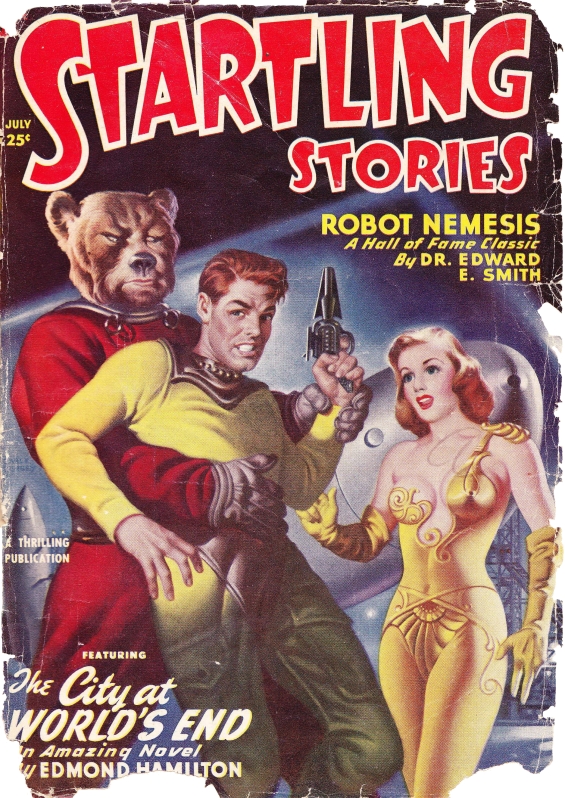
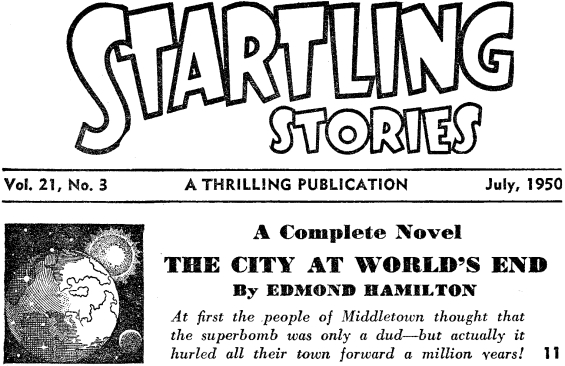
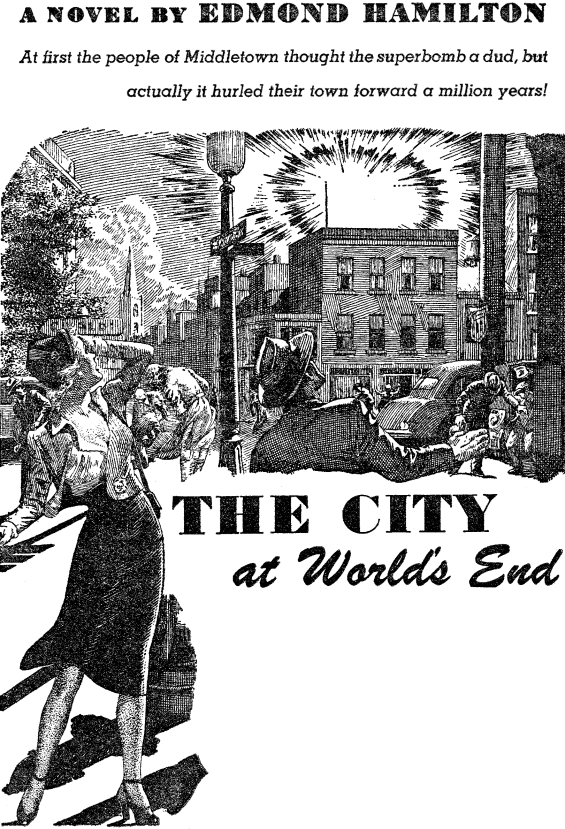
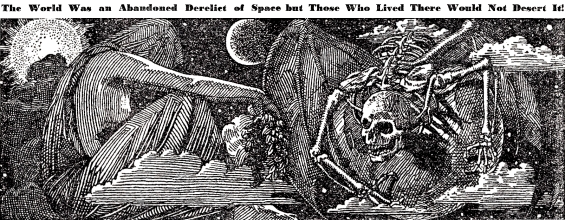
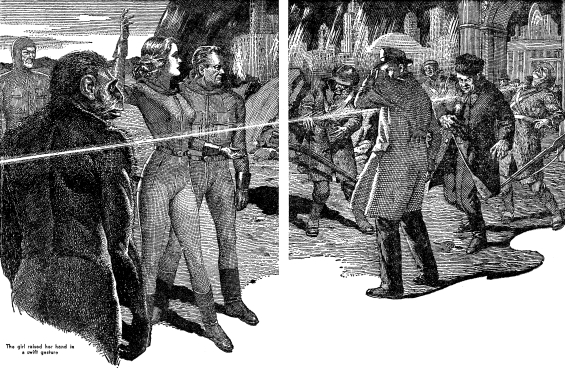
More covers:
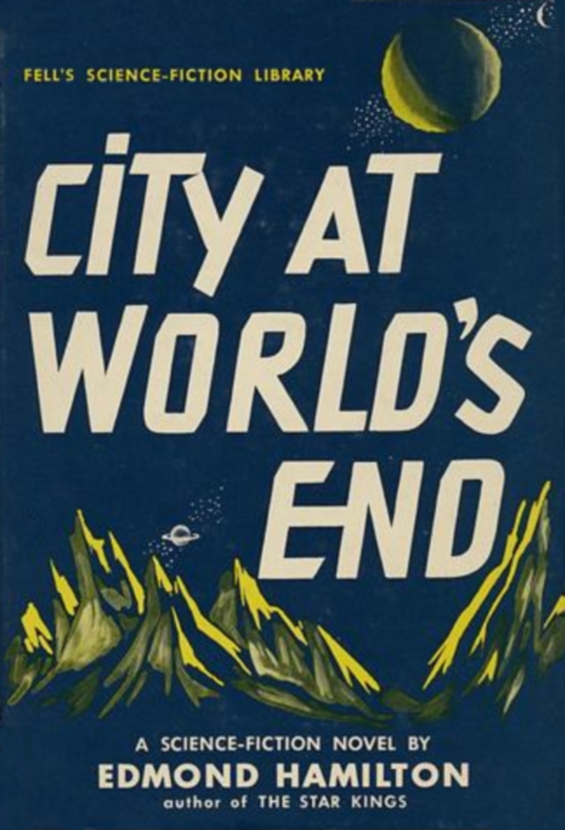
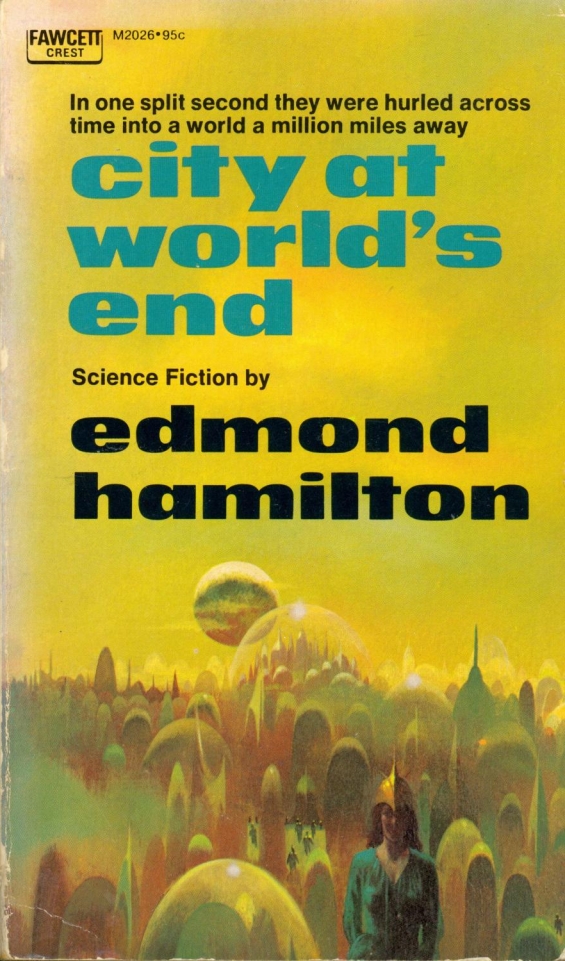
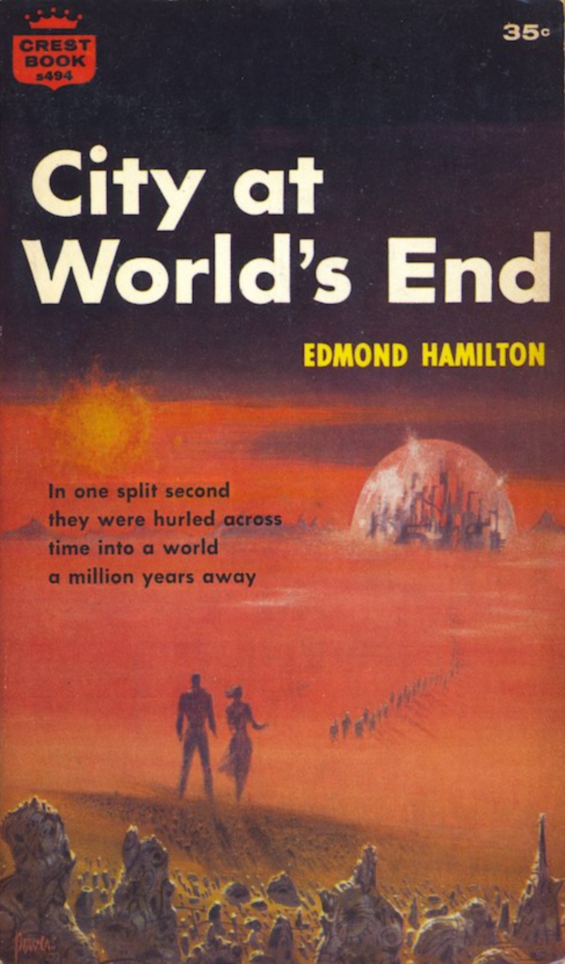

And one more image, from the cover of Urania:

[Thanks also to DaveC, Barry Eads, and Gerard Arthus]
Posted by Jesse Willis

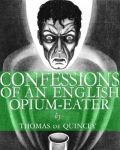
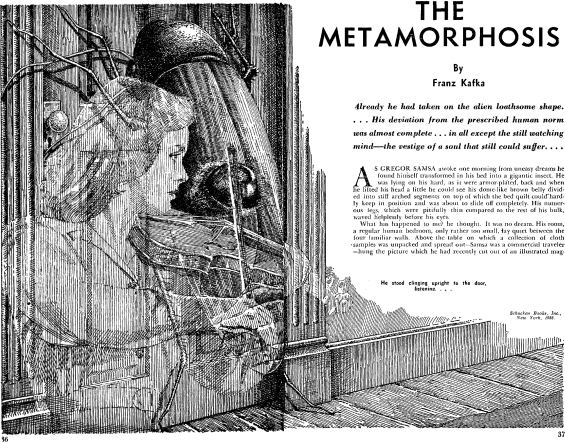


 The Metamorphosis
The Metamorphosis